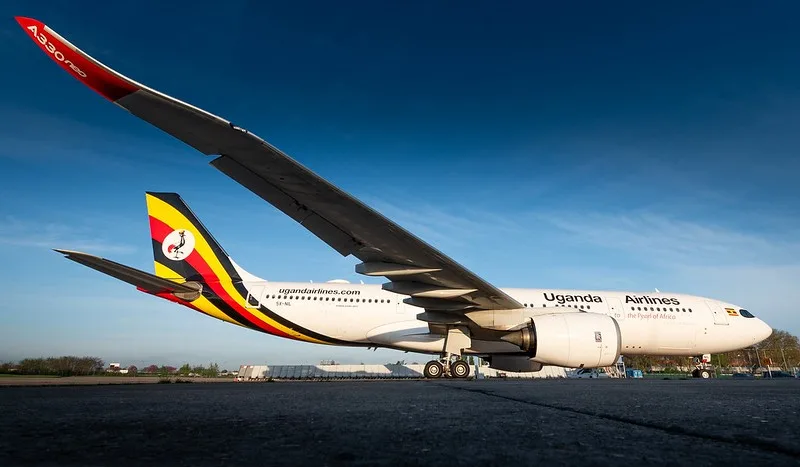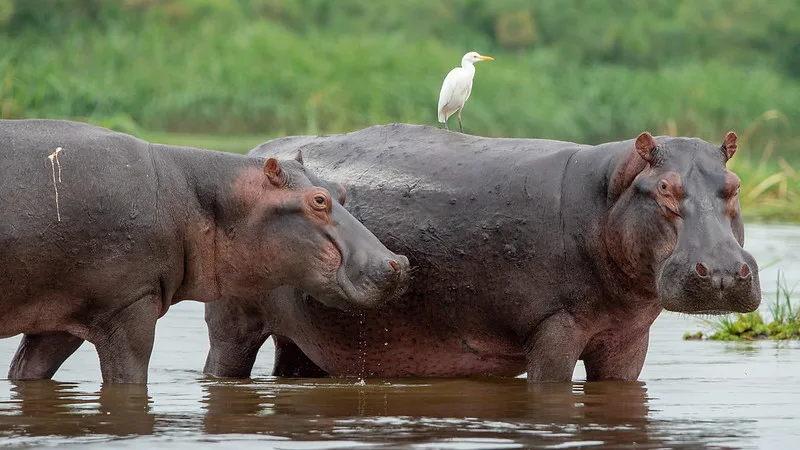Top affordable flights to Uganda, The most economical flights to Uganda have made it possible…
How to Have a Sustainable Hiking Trip in Uganda
Sustainable tourism is critical to the survival of local populations, their cultures, and the environment. Following sustainable principles lessens the impact of human activities on the Earth’s environment and natural resources.
At Monumental expeditions and safaris, we conduct responsible gorilla tourism, which aids endangered mountain gorilla species and nearby communities.
Hiking with us may help preserve the environment and neighboring communities in a variety of ways. Follow along to learn how to hike responsibly in Uganda.
Follow Your Guide’s Directions
![]() Our guides are well-versed in the terrain and surroundings you’ll be traversing. They are also familiar with the apes’ behaviors. To guarantee a safe and pleasurable tour, you must follow your guide’s instructions and safety precautions.
Our guides are well-versed in the terrain and surroundings you’ll be traversing. They are also familiar with the apes’ behaviors. To guarantee a safe and pleasurable tour, you must follow your guide’s instructions and safety precautions.
Staying with your guide and following their directions will give you a better understanding of how to respect your surroundings and appreciate the beauty of the animals.
Our guides will assist you in navigating rough terrain, as walking to the gorillas can be challenging for some visitors. The terrain can be steep and muddy, making navigation difficult at certain times of year. The woodlands are also thick, and you may need some time to acclimate to the high elevations.
Preparation is key for hiking sustainably. You should think about the weather and terrain conditions where you’ll be strolling so you can plan properly. Coming prepared reduces the need for extra resources.
Plants and wildlife must be respected.
Before you begin your trip into Uganda’s forests, a park warden will provide you with a summary of the park laws that you must strictly adhere to. These regulations are in place to safeguard tourists, employees, animals, and the environment.
When going gorilla trekking, it is critical to respect the gorilla group’s space. You may arouse the dominant male silverback’s wrath if you enter its territory without permission. In some cases, the silverback will approach you. In that scenario, follow the guide’s advice and remain cool; keep your eyes down. You might be blocking the silverback’s passage to a juicy branch.
It’s critical to remember that you’re entering the domains of these magnificent creatures. You’ll be able to see their natural behaviors as well as their unique social relationships. You must, however, remain your distance in order to safeguard our personnel and the gorillas.
Make sure to respect the vegetation. Picking vegetation degrades the habitat. You may recall the experience by photographing your interactions, but make sure to turn off your camera’s light. Flash photography might make gorillas feel uneasy.
Proper Waste Disposal
Trekking through Uganda’s deep woods is an excellent opportunity to get out and interact with nature. Gorilla hikes may be lengthy and exhausting, so make sure to bring some snacks and drink with you!
One of the simplest ways to embrace sustainability is to use a reusable water bottle. We do not encourage carrying plastic water bottles since they are made with fossil fuels and pollute the environment throughout their life cycle. If you must bring one, make sure you leave it in your trunk and return it to your house.
Planning can also assist to decrease waste. When you plan your journey, you may estimate how much water and food you will require. This can assist restrict the number of items you need to carry and the amount of garbage you need to transport. Any garbage or food scraps should be collected and stowed in your pack until you reach an appropriate waste disposal station.
If you have to go, you have to go! There are no toilets in the bush, so make sure you bury your waste at least 30 centimeters deep. This is significant because it avoids damaging surrounding water supplies and decreases the danger of disease transmission to forest populations, particularly gorillas.
If you are sick, stay at home.
![]() If you’re going gorilla trekking, it’s critical to stay at home if you’re sick. Humans and gorillas share many similarities; however, gorillas do not have powerful immune systems like us. Although it would be sad, remaining behind on a gorilla trekking excursion when you are sick protects the gorillas’ health.
If you’re going gorilla trekking, it’s critical to stay at home if you’re sick. Humans and gorillas share many similarities; however, gorillas do not have powerful immune systems like us. Although it would be sad, remaining behind on a gorilla trekking excursion when you are sick protects the gorillas’ health.
Going gorilla trekking when unwell might expose a troop of gorillas to a dangerous sickness. More than half of the mountain gorilla population lives in Bwindi Impenetrable National Park. Human sickness has the potential to decimate a population or possibly an entire species.
Even if you are in excellent health, you must wear a facemask when approaching the gorillas to keep fellow trekkers, staff, and gorillas safe.
Local businesses should be supported, and local cultures should be respected.
One component of sustainable hiking that is sometimes overlooked is the importance of supporting local businesses and communities. Gorilla tourism provides alternative livelihoods to populations surrounding conservation zones.
The Ugandan government donates 20% of gorilla permit costs to locals. These earnings go toward infrastructure development and alternative livelihoods for residents.
Booking housing that supports local communities and practices that are ecologically friendly can also help you have a more sustainable trip. For a more sustainable experience, we make an effort to limit carbon emissions in our offices, excursions, and locations. To decrease trash, we also cut energy and water use at our facilities.
Supporting locals contributes to sustainability since it boosts the local economy and enhances the quality of life. More opportunities, such as jobs, emerge. It also helps with conservation and preservation initiatives in locations where they are required.
Investigating the culture of the location you’re visiting can aid in its preservation. Respect for other cultures aids in the preservation of cultural ideas and practices that are essential to local communities.
Booking a gorilla trekking excursion with Monumental expeditions and safaris is a terrific way to aid local Ugandan communities with alternative lifestyles while also helping to conserve the endangered mountain gorilla species.
You may make the most of your time with us by arriving prepared, carrying eco-friendly things and gear, and researching the distinct customs of the surrounding towns before you arrive.


